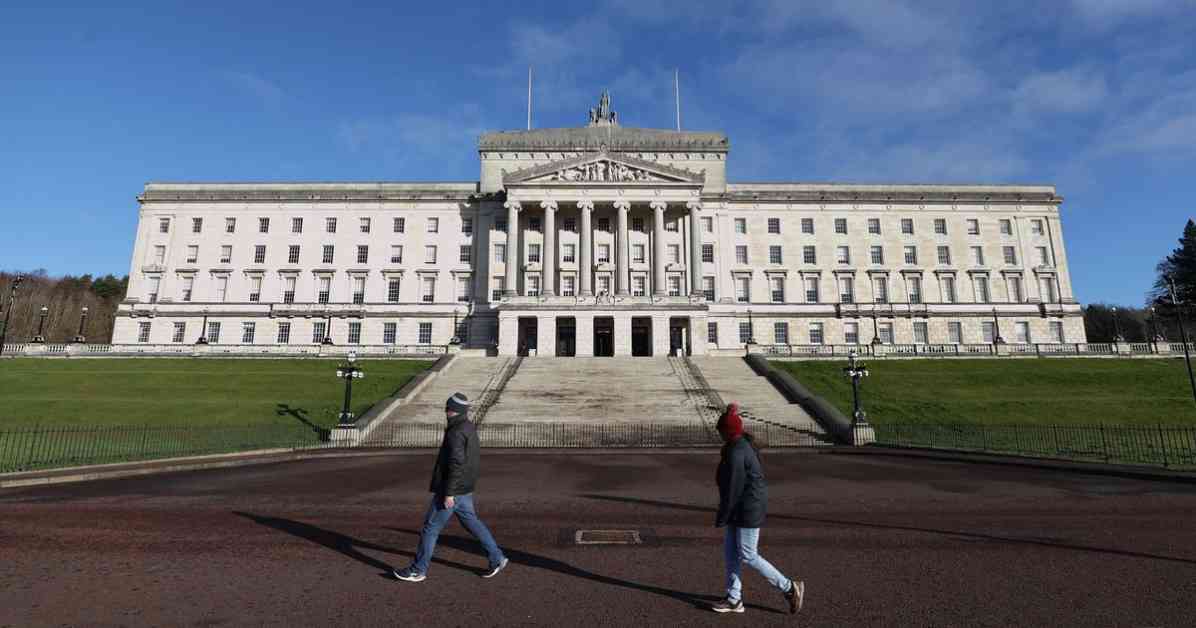Stormont ministers convened at Stormont Castle on Thursday morning to deliberate on a proposed programme for government that would outline the priorities for the devolved powersharing Executive over the next two-and-a-half years of the Assembly term. The delayed blueprint, once signed off by ministers, will not be officially published until Monday, as protocol dictates that it must first be presented to Members of the Legislative Assembly (MLAs) in the Assembly. This crucial document will serve as a roadmap for the Executive, setting out its strategic direction of travel and desired outcomes.
Challenges Facing the Executive
The Executive faces a myriad of challenges as it grapples with stretched finances in public services, spiraling hospital waiting lists, and an environmental crisis affecting Northern Ireland’s waterways. The ongoing impact of the COVID-19 pandemic has exacerbated these challenges, placing additional strain on an already burdened healthcare system. The programme for government will need to address these pressing issues and provide a comprehensive plan to tackle them effectively.
Opposition Calls for Transparency
Opposition leader Matthew O’Toole has been vocal in his calls for transparency and accountability from the Executive. He expressed concerns over the lack of a programme for government in Northern Ireland for almost a decade, highlighting the need for clear legislative plans and priorities to guide the Executive’s work. O’Toole’s concerns reflect a broader sentiment among the public and political stakeholders, who are eager to see concrete steps taken to address key issues facing the region.
Delayed Publication and Legal Concerns
The draft roadmap for the programme for government was initially expected to be published before the summer recess. However, delays ensued after ministers sought legal advice regarding the publication of the document during a general election campaign. The surprise July poll called by former Prime Minister Rishi Sunak prompted caution among ministers, leading to the postponement of the programme’s release. Despite these setbacks, the Executive remains committed to delivering a comprehensive and transparent plan for the remainder of its term.
Public Consultation and Accountability
In addition to presenting the programme for government to MLAs in the Assembly, the Executive will also seek input from the public through a consultation process. This inclusive approach aims to gather feedback and insights from a diverse range of stakeholders, ensuring that the government’s priorities align with the needs and aspirations of the people of Northern Ireland. Public consultation plays a crucial role in fostering transparency, accountability, and participatory governance within the Executive’s decision-making processes.
The Impact of Political Instability
The mandate of the Executive has been curtailed due to the political instability caused by the Democratic Unionist Party (DUP) bringing down the political institutions for two years in protest at post-Brexit trading arrangements. This disruption has had far-reaching consequences, affecting the region’s governance, policymaking, and delivery of public services. The delayed publication of the programme for government underscores the challenges posed by political instability and underscores the importance of building consensus and cooperation among political parties.
Looking Ahead: A Vision for the Future
As Stormont ministers deliberate on the proposed programme for government, they must keep sight of the overarching vision for the future of Northern Ireland. This vision should encompass sustainable development, social inclusion, economic prosperity, and environmental stewardship. By prioritizing these key areas, the Executive can chart a course towards a more resilient, equitable, and prosperous future for all residents of Northern Ireland.
In conclusion, the upcoming publication of the programme for government marks a significant milestone in the Executive’s efforts to address the pressing challenges facing Northern Ireland. By outlining its priorities and strategic direction, the government can demonstrate its commitment to transparency, accountability, and effective governance. As the Executive navigates a complex political landscape and grapples with formidable challenges, it must remain steadfast in its dedication to serving the best interests of the people of Northern Ireland.




